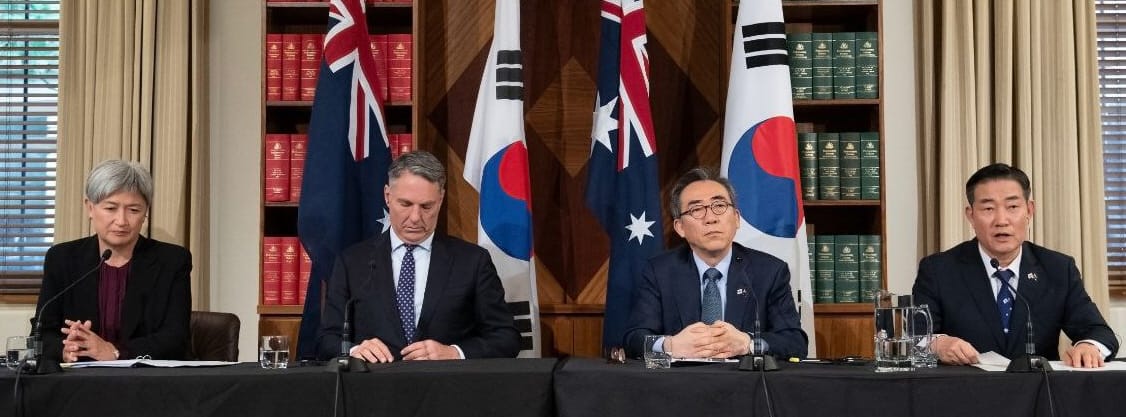South Korea Weighs AUKUS role, Corporate investment commitments, Itaewon Disaster Probe
South Korea is actively considering a role in "Pillar 2" of the AUKUS security partnership between the US, UK, and Australia, following discussions at the Korea-Australia Foreign and Defense Ministers' Meeting on May 1.

Implications of AUKUS Pillar 2 Participation Under Study
South Korea is actively considering participating in "Pillar 2" of the AUKUS security partnership between the United States, United Kingdom, and Australia, according to discussions at the Korea-Australia Foreign and Defense Ministers' Meeting on May 1.
AUKUS was launched in September 2021 by the three Anglosphere allies to coordinate efforts to counter China's growing assertiveness in the Indo-Pacific region. While the headline item was an agreement for the U.S. and U.K. to share nuclear submarine propulsion technology with Australia, AUKUS also includes the lesser-known Pillar 2 focused on joint development of advanced technologies like artificial intelligence, quantum computing, cyber, hypersonic missiles, and undersea systems.
Pillar 2 is envisioned to include additional partner countries beyond the core AUKUS trio. Japan, South Korea, Canada and New Zealand have been floated as potential participants who could contribute their own technological strengths. For Seoul, joining Pillar 2 would mark another step in aligning itself with Washington's Indo-Pacific strategy and efforts to constrain China's growing power.
However, it would also risk provoking backlash and economic retaliation from Beijing, which has harshly criticized AUKUS as an attempt at "Cold War-style bloc politics." While Pillar 2 has a less overtly military focus than the nuclear sub program, it is still viewed by China as part and parcel of U.S. efforts to maintain its regional hegemony by organizing allies against Beijing.
Therein lies the dilemma for South Korea. President Yoon Suk-yeol's conservative government has placed a premium on strengthening the U.S. alliance and taken a harder line against China, as evidenced by its embrace of the Indo-Pacific Economic Framework and trilateral cooperation with the U.S. and Japan. But it must also tread carefully to avoid unduly antagonizing China, its largest trading partner and a key player in peninsular stability.